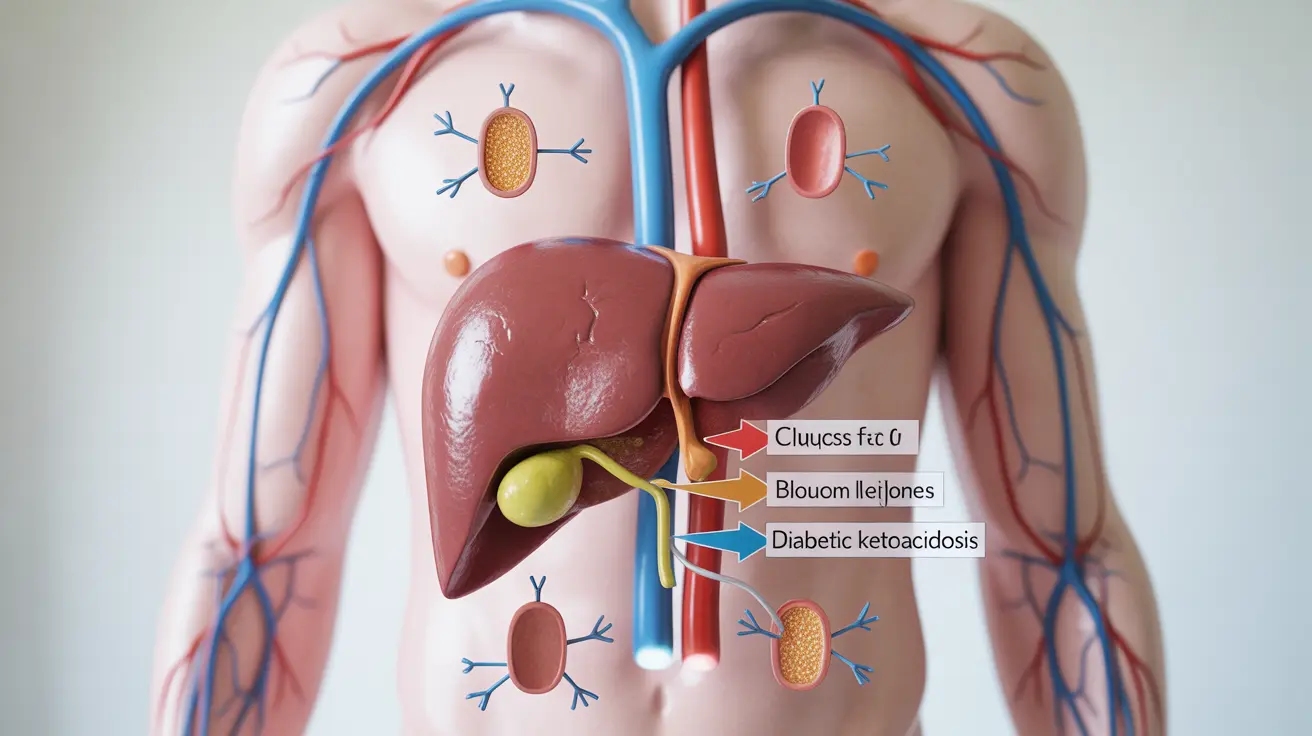Ketones play a crucial role in how our bodies process energy, but for people with diabetes, these chemical compounds can signal potentially dangerous complications. Understanding what ketones are, how they affect blood sugar management, and when they become a health concern is essential for anyone living with diabetes or caring for someone with the condition.
This comprehensive guide explores everything you need to know about ketones in diabetes, including testing methods, warning signs, and when to seek medical attention. Whether you have Type 1 or Type 2 diabetes, this information could help you prevent serious complications.
What Are Ketones and Their Role in Diabetes?
Ketones are acidic chemicals produced by your liver when it breaks down fat for energy instead of glucose. While this process is natural and can occur in anyone, it becomes particularly significant for people with diabetes. When the body doesn't have enough insulin to use glucose for energy, it turns to fat as an alternative fuel source, leading to ketone production.
For individuals with diabetes, especially Type 1, the presence of ketones can indicate that blood sugar management needs attention. High levels of ketones can lead to a dangerous condition called diabetic ketoacidosis (DKA), which requires immediate medical intervention.
Recognizing High Ketone Levels
Physical Symptoms
Early detection of elevated ketone levels is crucial. Common symptoms include:
- Excessive thirst
- Frequent urination
- Nausea or vomiting
- Stomach pain
- Confusion or difficulty concentrating
- Fruity-smelling breath
- Weakness or fatigue
Risk Factors
Several factors can increase the likelihood of ketone buildup:
- Missing insulin doses
- Illness or infection
- High stress levels
- Pregnancy
- Dehydration
- Sustained high blood sugar levels
Testing for Ketones
Regular ketone testing is essential for people with diabetes, particularly during illness or when blood sugar levels are consistently high. Two primary methods exist for testing ketones:
Urine Testing
Urine test strips are the most common and accessible method for checking ketone levels at home. These strips change color to indicate the concentration of ketones present in your urine.
Blood Testing
Blood ketone meters provide more accurate results than urine tests and can detect changes in ketone levels sooner. This method involves using a specialized meter and test strips to measure blood ketone levels directly.
Prevention and Management
Preventing ketone buildup requires consistent diabetes management strategies:
- Regular blood sugar monitoring
- Taking medications as prescribed
- Maintaining proper hydration
- Following a balanced meal plan
- Regular exercise when blood sugar levels are stable
- Having a sick-day management plan
Frequently Asked Questions
What are ketones and how do they affect people with diabetes?
Ketones are chemicals produced when your body breaks down fat for energy instead of glucose. For people with diabetes, high ketone levels can indicate insufficient insulin and may lead to diabetic ketoacidosis, a serious complication requiring immediate medical attention.
What symptoms indicate high ketone levels or diabetic ketoacidosis (DKA)?
Key symptoms include excessive thirst, frequent urination, nausea, vomiting, stomach pain, confusion, fruity-smelling breath, and weakness. These symptoms, especially when accompanied by high blood sugar, warrant immediate medical attention.
How can I test for ketones at home and when should I seek medical help?
You can test ketones using urine strips or a blood ketone meter. Seek immediate medical help if your ketone levels are moderate to high, especially if accompanied by symptoms of DKA or persistently high blood sugar.
What causes ketone buildup in people with type 1 and type 2 diabetes?
Ketone buildup occurs when there isn't enough insulin to help cells use glucose for energy. This can happen due to missed insulin doses, illness, stress, or other factors that affect insulin production or effectiveness.
How is diabetic ketoacidosis treated and how can it be prevented?
DKA treatment typically involves hospital care with intravenous fluids, insulin, and electrolyte replacement. Prevention includes regular blood sugar monitoring, taking medications as prescribed, staying hydrated, and having a sick-day management plan.




